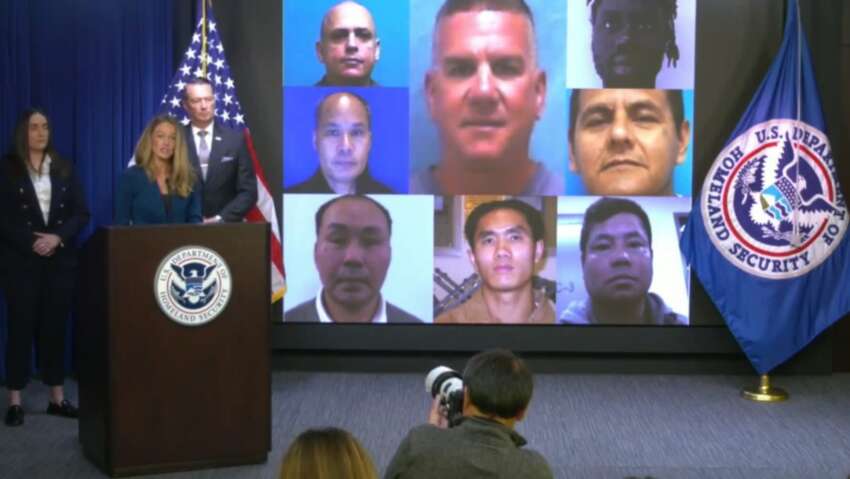
A significant controversy has emerged as U.S. President Donald Trump’s administration deported approximately a dozen immigrants, including two Myanmar nationals and Vietnamese citizens, to South Sudan instead of their countries of origin. The two Myanmar nationals involved in this case are Kyaw Mya and Nyo Myint, both of whom had previously been convicted of crimes in the United States. Kyaw Mya had served part of a 10-year prison sentence for child abuse involving a victim under 12 years old and was released on parole after four years. Nyo Myint had been sentenced to 12 years for a sexual offense.
Immigration rights attorneys have strongly protested against Trump’s actions in this matter. According to the lawyers, while they received email notifications indicating the immigrants would be sent to South Africa, they were instead transported to South Sudan. Furthermore, the Myanmar nationals who were sent to South Sudan had not signed any transfer documents from the Trump administration. The attorneys have filed complaints with U.S. District Judge Bryan Murphy, who had previously issued an order prohibiting the deportation of immigrants to third countries without court hearings.
The lawyers have accused Trump of contempt of court through these actions. The immigrants in question were being held at the Fort Lofnots Detention Center in Texas before being transferred to South Sudan. This case has drawn particular attention because it represents a departure from standard deportation procedures, where individuals are typically returned to their countries of origin. The attorneys representing the immigrants have emphasized that this action not only violates established legal protocols but also potentially puts the deportees at risk by sending them to a country with which they have no connection.
Since Trump’s return to the presidency, his administration has implemented increasingly stringent policies regarding illegal immigrants and those with immigration violations. While these policies typically involve deportation to immigrants’ countries of origin, this case has raised legal concerns due to the decision to send them to a third country. The situation has highlighted broader issues regarding immigration enforcement practices and has led to increased scrutiny of deportation procedures under the current administration. The legal community continues to challenge these actions, arguing that they represent a violation of both U.S. law and international human rights standards.



